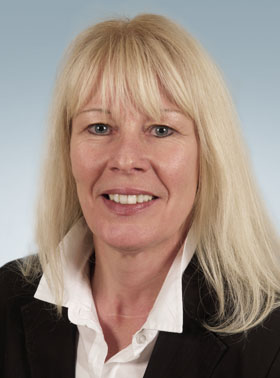Potsdam-Rehbrücke, 21.11.2019
Diabetology: Deficits in the Promotion of Young Talents – Increasing Demands
Diabetology faces major challenges due to a decrease in the number of chairs in diabetology and increasing numbers of people with diabetes. Professor Annette Schürmann and Dr. Thomas Laeger from the DZD partner DIfE, together with colleagues from Aachen and Freiburg, highlight this situation in the recently published German Health Report Diabetes 2020 (from page 231). They also point out why this shortage has occurred and illuminate what is being done to rekindle interest in diabetology among young doctors and aspiring researchers and secure patient care.
Currently there are around seven million people with diabetes in Germany – and the trend is rising. Experts estimate that the number of people with diabetes will increase to around 12 million by 2040. In contrast, the number of university chairs in endocrinology and diabetology is steadily decreasing. Twenty years ago there were 17 clinical chairs in endocrinology, diabetology and metabolism at the 33 medical universities in Germany – today there are only eight. Professor Annette Schürmann, head of the Department of Experimental Diabetology at the German Institute of Human Nutrition Potsdam-Rehbrücke (DIfE) and spokesperson of the DZD, and Dr. Thomas Laeger, department project leader, point out in the report that there are fewer and fewer adequate training positions, which also reduces expertise in diabetology in clinics and practices. The problem starts already during university studies because the subject of diabetology is not sufficiently represented in many university curricula. As a result, medical students often have an inadequate knowledge of diabetology after graduation.
Counteracting the shortage of young talents in diabetology
Since 2007, the German Diabetes Association (DDG) has pursued a systematic program for young talents to inspire young physicians’ and scientists’ interest in diabetology research and practice. Travel grants are awarded to participate in national and international congresses, and specific mentoring programs are offered.
In 2017, the DDG's junior researcher program led to the development of the Working Group of Young Researchers, whose spokespersons are Professor Annette Schürmann and Professor Jochen Seufert, head of the Department of Endocrinology and Diabetology at Freiburg University Hospital. Among other things, the working group is committed to ensuring that diabetology shall become a standard subject in medical studies, and it is organizing its own symposium at DDG conferences. In April 2019, the working group organized the 1st Aachen Diabetes Day in order to encourage interest in diabetology among students of medicine, biology, biotechnology, etc. More than 70 participants attended the lectures and workshops on type 1 and type 2 diabetes as well as on career opportunities in research and clinics. Because the event was so well received, another Diabetes Day took place in Leipzig on November 7th. A continuation at further universities in Germany is planned.
Promoting young talent at the German Center for Diabetes Research
Annette Schürmann and Thomas Laeger also refer to the promotion of young talent of the German Center for Diabetes Research (DZD) in their article. For example, the DZD Research School takes place each year prior to the annual meeting of the European Association for the Study of Diabetes (EASD) or the International Symposium on Insulin Receptors and Insulin Action. There around 80 young researchers have the opportunity to gain insights from renowned speakers into current diabetes research. In addition, the DZD supports the training of young physicians and scientists through special courses and programs.
New generation with many positive qualities
Schürmann and Laeger see a lot of potential in the next generation of doctors because these recognize deficiencies and are actively committed to improving them. Diabetology makes it possible to combine patient-oriented medicine with doctors’ quality of life. In order to avoid frustration and overwork in the daily work routine of diabetology staff in clinics and research institutions, it is important "that the demands for more staff, fair pay for long working hours and the creation of more permanent jobs are not ignored".
Background information: German Health Report Diabetes
The German Diabetes Association (DDG) publishes the German Health Report Diabetes annually together with diabetesDE – German Diabetes Aid on the occasion of World Diabetes Day on November 14th. The publication describes the current state of type 1 and type 2 diabetes prevention, therapy and research.
Press contact

Birgit Niesing
niesing(at)dzd-ev.de
+49 (0)89 3187-3971

